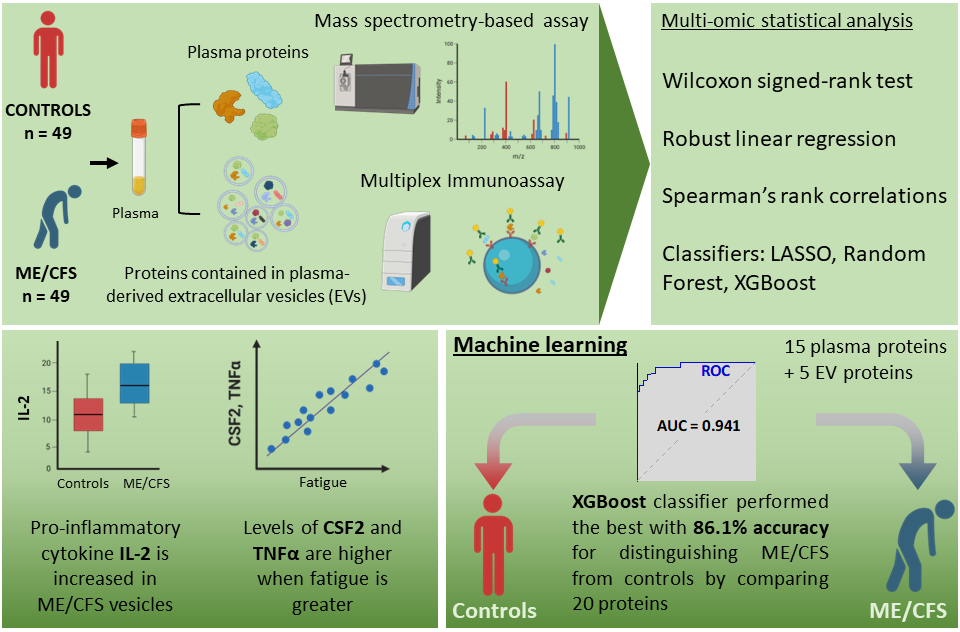A new open access publication in the Journal of Translational Medicine describes the work by Giloteaux et al. to uncover ways to detect the disease ME/CFS. Ludovic Giloteaux and Jiayin Li, joint first authors, took a collaborative approach to improve our understanding of ME/CFS. Giloteaux isolated extracellular vesicles from the plasma of 98 Chronic Fatigue Initiative individuals (49 ME/CFS and 49 controls) to study their signaling molecules (i.e., cytokines). Then he worked with Jiayin Li and David Ruppert, statisticians at Cornell, and using data generated by Columbia University investigators, the group combined plasma cytokine, EV cytokine, plasma proteomic, and demographic datasets to explore new ways to approach ME/CFS.

One of the key findings from the publication is the 86% accuracy in differentiating between people with ME/CFS and health controls. Giloteaux et al. leveraged multiple datasets to achieve this goal. The paper also outlines interesting correlations between various biological molecules and clinical surveys that measure disease severity. For example, higher levels of pro-inflammatory molecules (e.g., CSF2 & TNFa) were correlated with greater physical and fatigue symptoms in people with ME/CFS.
The publication is open access so see the website for more information. Additionally, the EV cytokine data is available on mapMECFS.

 Center for Enervating NeuroImmune Disease
Center for Enervating NeuroImmune Disease
